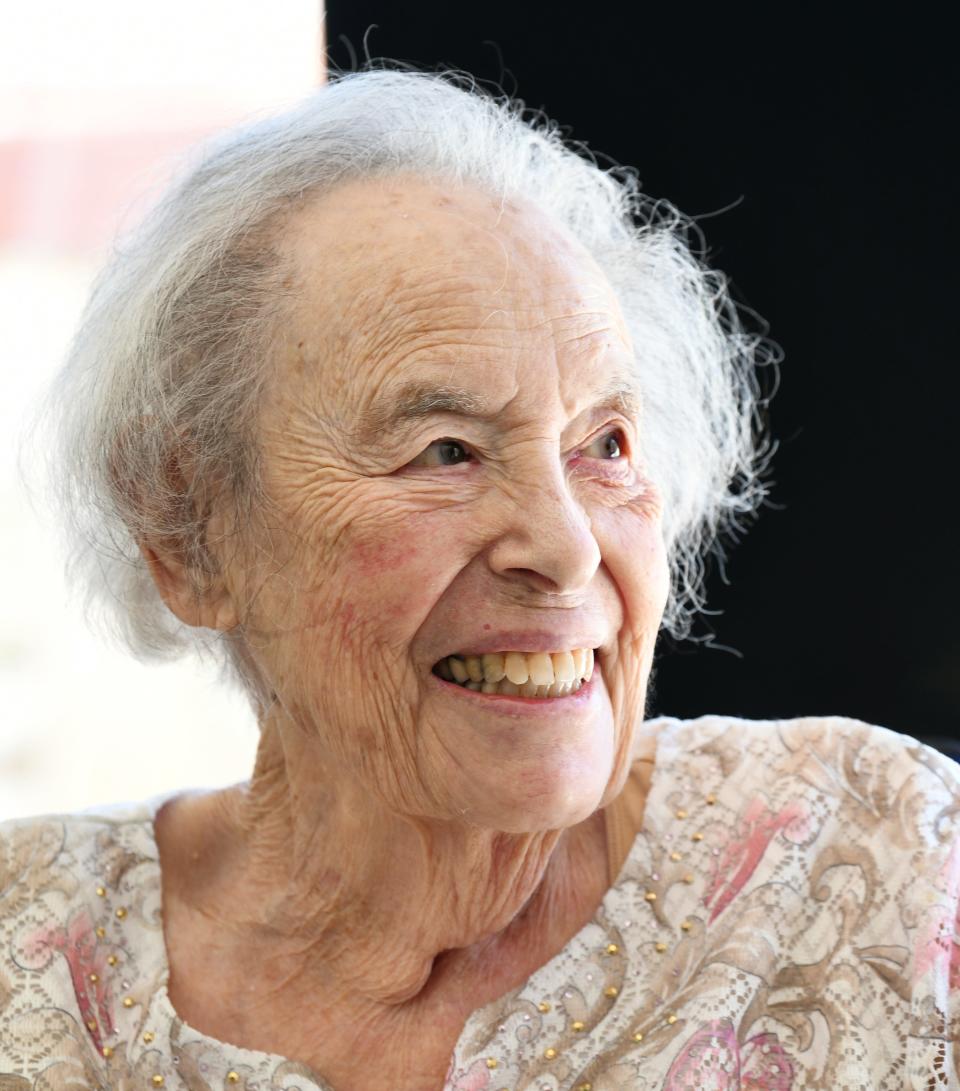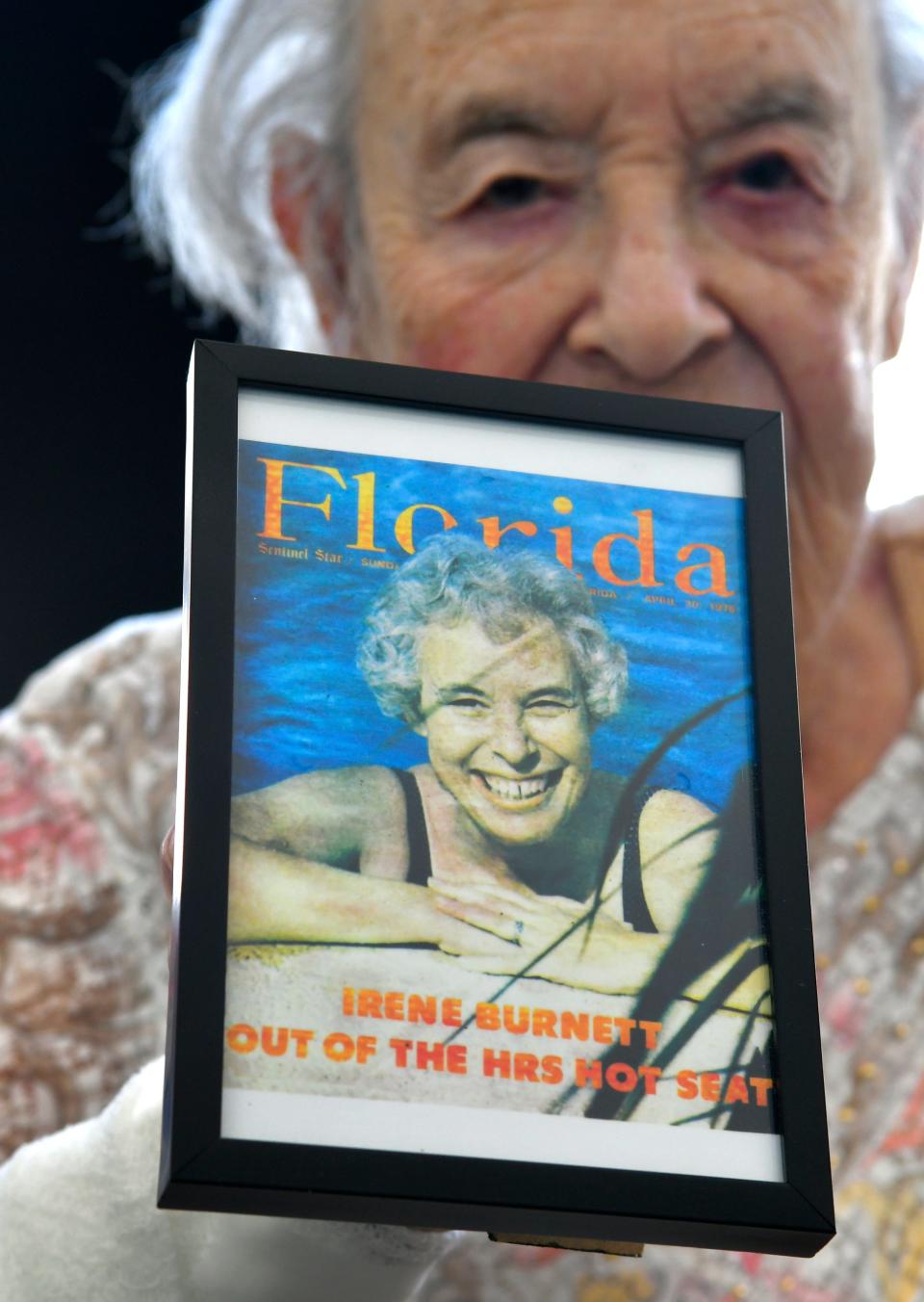She helped bring Brevard its first social services — and does she have stories to tell
Irene Burnett got straight to the point: "I have a story to tell," she said.
Does she ever.
Burnett's 94 now, long retired from a groundbreaking career in social services dating to when Brevard County had none of the same.
It's been a tough few weeks for the Merritt Island resident.
On April 16, she lost her husband of 68 years, attorney Lawrence Ringling Burnett, to COVID-19. She's in hospice care at home through VITAS Healthcare, surrounded by caregivers, friends and family known as "Irene's angels."
But her voice is strong, as are her stories. She'll guide you on a trip through Brevard's past as she sits in a light-filled room, a sparkling pool and Sykes Creek in the background.
Bipolar condition: Gen. Martin: U.S. Army Ranger School and my pre-bipolar mental/brain condition
Sharing love: No matter who calls them 'Mom' on Mother's Day, these women share love year-round
A native of Columbia, South Carolina, Burnett is a graduate of New York University. She earned a master's degree in child development at the University of Wisconsin, where she met her husband (whose grandfather was indeed one of "the" Ringling Brothers).
She was in North Carolina working on President Johnson's anti-poverty program, setting up community action agencies, when she got an offer to direct the Community Services Council, Brevard's social services planning agency founded in 1965.
Though excitement over the space program was great and growth was rampant, Burnett said, in many ways 'it was a mess down here."
"There were no services," she said. "The first thing we did was a needs assessment, and determined priorities ... we decided mental health was probably the biggest problem that we had, because the divorce rate was so high, and other factors related to mental health."

The population had soared. People moved to the Space Coast, she said, with myriad problems — mental health. Financial. Social diseases: By November 1969, Brevard led the state in gonorrhea cases. The Brevard County Mental Health Center's figures from that time show 13,000 alcoholics — 2% higher than the national average. Doctors attributed the problem to the fact that "Brevardians like to celebrate."
Brevard also ranked high in divorces, seventh of Florida's 67 counties in 1969.
Burnett recalls the evolution of social services: a lawyer referral service, which "was the beginning of legal aid," she said. "We had a dental clinic with the cooperation of the health department. We created the Brevard Achievement Center."
After a move to Houston, the Burnetts returned to Brevard County in 1972, and she took on a new position as director of the Mental Health District Board.
She's devoted to community, say those who've known Burnett for decades.
"Irene is the most competent, respected and effective advocate for children and families I have ever known," said Rep. Bill Posey, who got to know Burnett when he was on the board of directors of the Brevard County Mental Health Association, a predecessor to Circles of Care.
"In addition having a servant’s heart, she is very smart and persuasive. Because she is well read and always had her facts in order, it appeared easy for her to command the respect of her audience. In addition to her well-earned reputation as a competent leader in the social services arena, Irene was well respected throughout the community."
At one point down the road, "I thought I had retired," she said.
"Then the Florida Legislature suddenly up and decided they were going to divide the state of Florida into 11 geographic districts, and put every state human service, social service under a district administrator," Burnett said. "I became administrator for District 7 and I had Brevard, Orange, Osceola and Seminole counties — a staff of close to 300 and a budget of several million dollars."
There were battles, big ones stemming from long-rooted problems in the social services system, along the way. She left the job in 1978. Upon her exit, she was featured in an Orlando publication's cover story.
" ... If you don't like the status quo, use some ingenuity to change it. It's a philosophy that's worked well for one of Central Florida's most innovative — and controversial — state bosses," the writer for Florida magazine stated.
Funding was always a then — even worse than now, Posey said. Burnett took it on.
"Irene had a good handle on available resources and first brought it to everyone’s attention that state funding for ADM (alcohol, drug abuse and mental health) programs for our district was the lowest in the state," he said.

"It took years to get the formula changed, but thanks mostly to Irene’s persistence, we were able to get funding equalized based upon population. We are talking about millions of dollars, and hundreds of millions over time, annually lost or gained based upon the old and new distribution formulas ... the seemingly never-ending battle against ADM looms larger than ever. Were it not for Irene, the situation would be even more dire."
Much has changed since the nonprofit Community Services Council — renamed Aging Matters in Brevard in 2012 — was founded 57 years ago.
An avid reader, Burnett still follows with a knowing eye news regarding local life and how social services, and those in the field, are faring.
She's proud of groundwork laid all those years ago, and "we've come a long way," she said.
Still, some things never change.
"There's an unceasing need. Children's services always desperately needs people. Mental health services always do, too. Financial aid continues to be a huge problem. It's just never-ending," she said.
"I think we have a long way to go in discovering the causes of mental illness, and treatment."
Contact Kennerly at bkennerly@floridatoday.com. Twitter: @bybrittkennerly Facebook: /bybrittkennerly. Local journalism like this needs your support. Consider subscribing to your local newspaper. See our current offers.
This article originally appeared on Florida Today: Social services pioneer recalls Brevard when 'it was a mess down here'

